Over 120 attendees gathered in a local fellowship hall on Oct. 7 to hear from Dr. Rabab Abdulhadi after her on-campus event “One Year Since al-Aqsa Flood: Reflections on a Year of Genocide and Resistance” was canceled last week by Wake Forest administration. Her arrival comes after several Wake Forest and Winston-Salem community members came together to advocate for and fundraise for her arrival in the city.
Abdulhadi was originally scheduled to give a lecture at Wake Forest on Oct. 7, one year after Hamas’ surprise attack on Israeli towns bordering the Gaza Strip, which resulted in the death of 1,200 Israelis and the capture of 200 hostages. Since then, according to the Official Health Ministry, over 41,500 Palestinians have been killed in the ongoing Israel-Hamas war.
Co-sponsored by five different departments within the University, the event was canceled after pushback from several Jewish students, who created a petition to cancel Abdulhadi’s talk that amassed over 8,000 signatures. The petition cited claims of Abdulhadi spreading antisemitic rhetoric and supporting Hamas.
In response, Rubin Presidential Chair of Jewish History and Professor Barry Trachtenberg, a member of the faculty seminar that organized the speaker event, Free Palestine WFU, a pro-Palestinian student group and Wake Forward, a faculty group advocating for progressive ideology, wrote a letter petitioning to bring Abdulhadi to speak in Winston-Salem. Trachtenberg reported that the letter gathered over 800 signatures. The Old Gold & Black verified this figure, although signatures remain private.
Moving the talk off-campus
Without affiliation or monetary support from the University, organizers held Abdulhadi’s event at the Unitarian-Universalist Fellowship of Winston-Salem.
“There were so many people who were crushed and disappointed by the University’s decision to cancel the talk, that it felt like there was an obligation on us to try to do our best to make it happen,” Trachtenberg stated in an interview with the Old Gold & Black.
According to Abdulhadi, the University did not personally communicate with her about canceling the event.
“They never talked to me, they never asked me ‘what do you think,’ ‘what are you going to speak about’ — nothing. They just made an assumption, without talking to me,” she said.
The unaffiliated, rescheduled talk was not publicized on any public platforms. Trachtenberg said the organizers were “limiting publicity” of the talk to ensure the safety of the facility and the speaker.
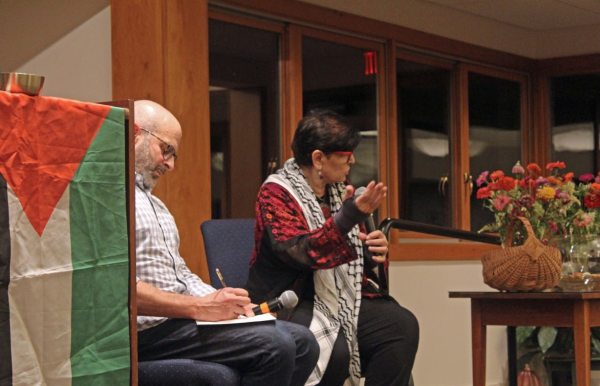
Abdulhadi is a professor and the founding director of the Arab and Muslim ethnicities and diasporas studies program at San Francisco State University.
In an interview with the Old Gold & Black, Abdulhadi discussed the personal impact of the University’s cancellation.
“I felt that it was an academic insult,” she said. “If they were going to do it, why didn’t they do it earlier –– before I bought the ticket, before I rearranged my schedule, I rearranged my classes? It was an inconvenience.”
Professor Abdulhadi speaks at the fellowship hall
Abdulhadi spoke for a little over an hour after an introduction from Trachtenberg. She began her talk by stating that the cancellation of her event at Wake Forest did not deter her.
“There is no way that I wasn’t going to come. The fact that people banded together and said, ‘we’re to host you, we’re not going to listen to what Wake Forest University and its Zionist complicit allies said,’ was a huge important honor — to say we’re not going to be silenced,” said Abdulhadi.
Abdulhadi spoke at length regarding the University’s cancellation of her talk.
“I was actually very furious that I was silenced…and I also found it hypocritical that there was a Zionist who came to speak, almost under the same title, and then I wasn’t allowed to speak,” she said.
In an email, Abdulhadi confirmed her above statement was regarding a lecture given by Israeli-American David Makovsky, the director of the Koret Project on Arab-Israel relations, hosted on April 16, 2024, at Wake Forest.
Abdulhadi also voiced dissent regarding the Oct. 7 memorial hosted by Chabad and Hillel, Jewish student organizations, on Wake Forest’s campus.
“Wake Forest is already having a huge event by pro-Israeli groups that is on [the] University campus, that even if [the] University has not paid a single penny for it, at the very least, by hiring the university police, paying them, probably overtime because it’s evening, and having it happen, they are already commemorating Oct. 7,” she said. (Editor’s note: the Old Gold & Black can not substantiate any claims about the payment of University Police at this event)
Regarding the claims that Abdulhadi is a supporter of Hamas, she did not directly address any controversy.
“I support the United Nations Charter that says people who are under occupation have the right to defend themselves,” Abdulhadi stated as part of her discussion surrounding her viewpoints on Palestinian liberation.
Abdulhadi emphasized that “history did not begin on Oct. 7,” referencing that the conflict between Israel and Palestine existed long before Oct. 7, 2023.
She also discussed the systematic structure of colonialism, Palestinian liberation and the frustrations of being a Palestinian professor and scholar. At the end of her initial remarks, audience members gave her a standing ovation.
Audience questions
After Abdulhadi’s talk, Trachtenberg moderated a short Q&A with the audience. Questions included her views on social media, youth activism, the erasure of Palestinian academics and voting in the upcoming election.
Steve Feldman, a candidate for North Carolina’s 10th congressional district, asked Abdulhadi what she wants Palestinian liberation and the end of war to look like.
“That refugees are able to return to their homes — that we can sit under olive trees and talk with each other and sing with each other,” Abdulhadi said.
In an interview with the Old Gold & Black, Feldman expressed that he was not surprised the University canceled Abdulhadi’s on-campus talk.
“There are really well-meaning people who think that she wants to kill Jews,” Feldman said. “I feel that if somebody were attacking me for being Jewish, she’d probably [be more likely to] stand up for me than a lot of those other people who think that she’s a terrorist.”
Abdulhadi also spoke about why she felt it was important she still came to Winston-Salem to give her talk.
“It was really important that we felt energized — that we weren’t defeated. It was really important for us to come together, not allow them to silence us,” she said. “And I felt very welcomed; I felt very warm; I felt a lot of love.”



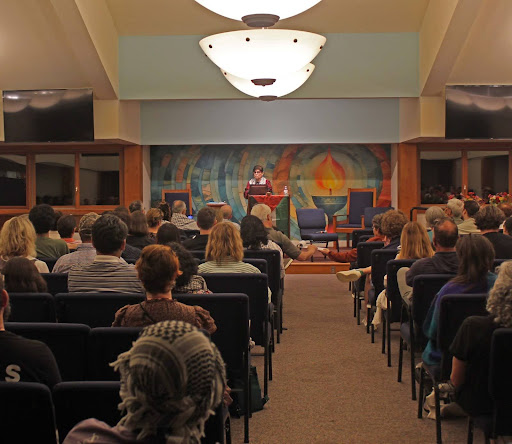

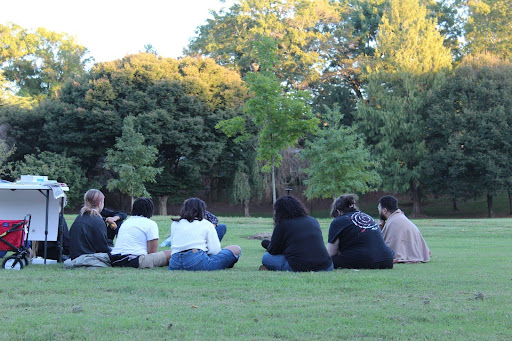
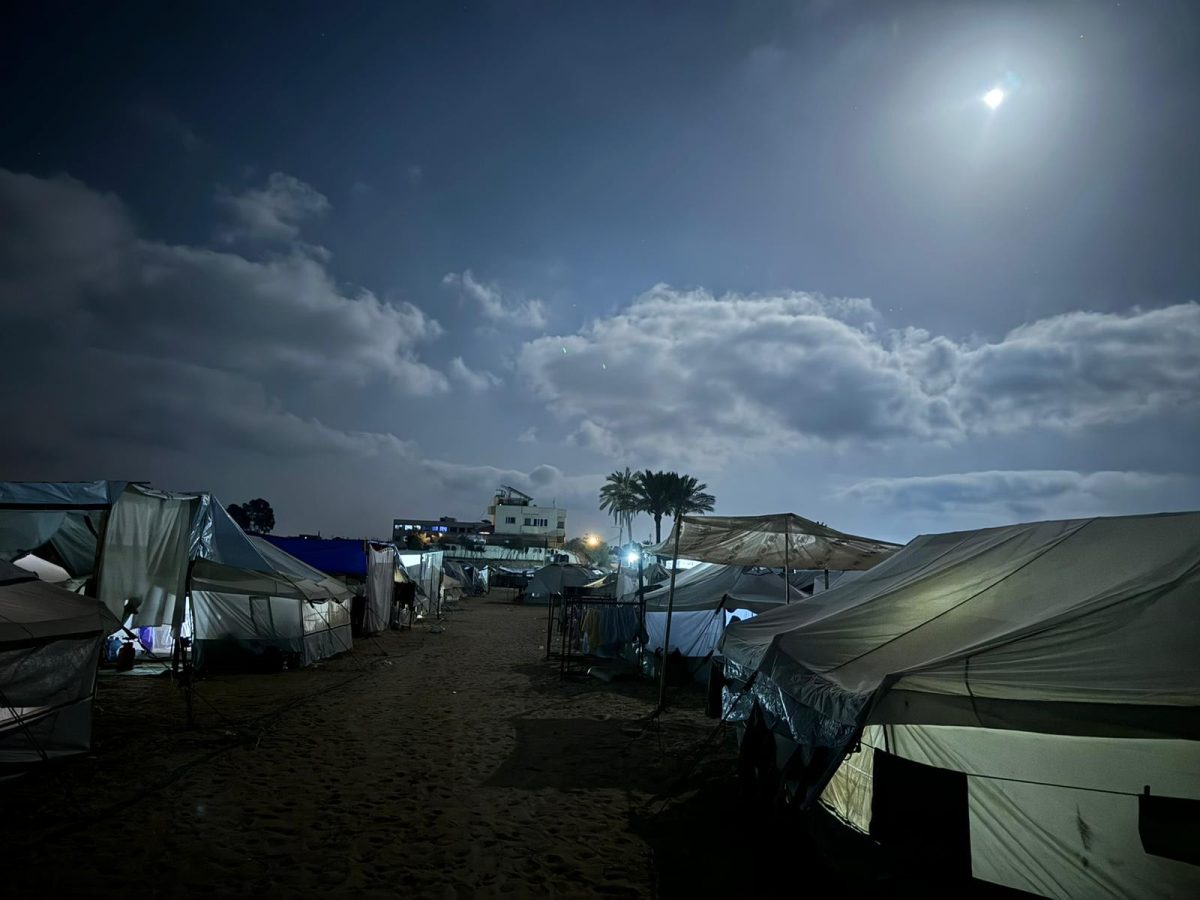
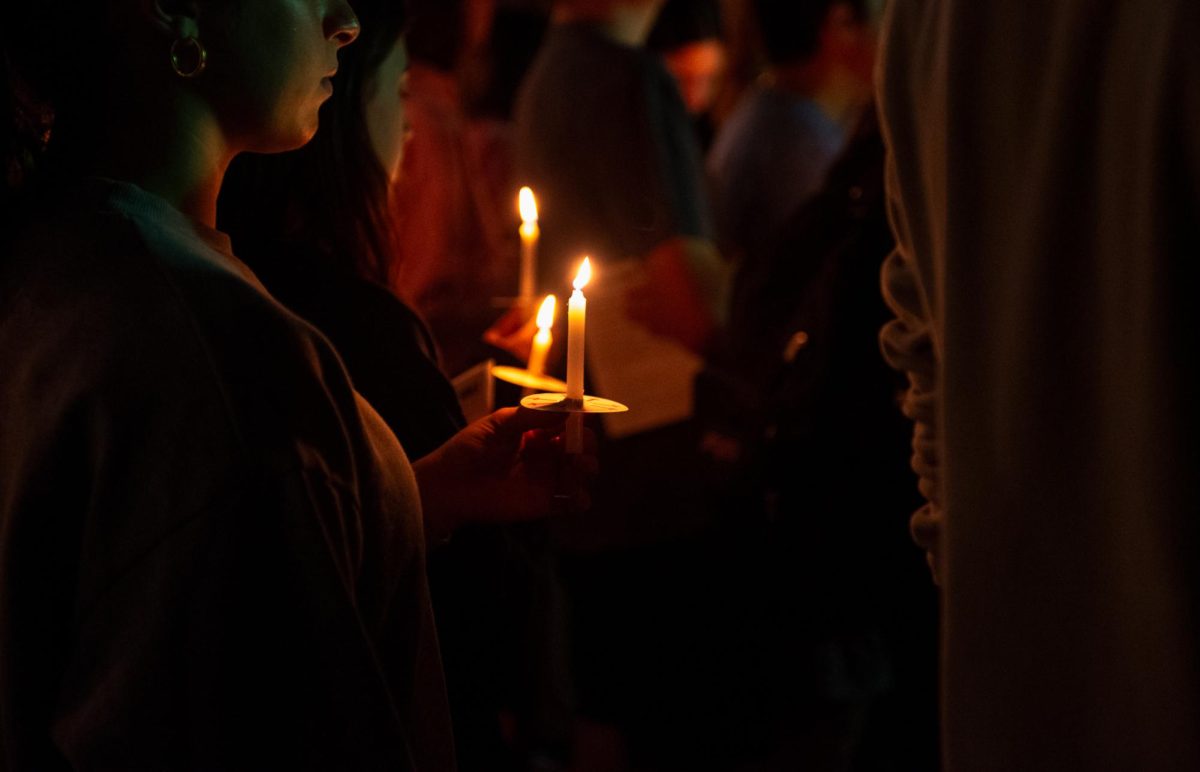









Not A Sheep • Oct 16, 2024 at 3:20 pm
I support discussion of opposing viewpoints, especially at a university campus where intellectual and academic debates should be fostered. But why plan for a pro-Palestinian scholar to speak on October 7th, which marks the anniversary of an atrocious and heinous massacre of civilians in Israel? It was hardly a coincidence! Let’s not pretend there wasn’t an element of wanting to give the middle finger to Jews by selecting that date. Open debate – good. Deliberate disregard for the pain experienced by Jews – bad.
Student • Oct 9, 2024 at 10:40 am
Thank you to all the amazing professors and community members who banded together to bring such an esteemed scholar to our campus despite the administrative repression!!!
 <3
<3
A friend of facts • Oct 13, 2024 at 2:20 pm
Yes indeed. But keep in mind the power of Zionist networking. Think of it: 8,000 signatures on a petition just like that! How does that happen? They were just waiting in the weeds to sabotage academic freedom that went contrary to their practice of genocide. The takeaway? 8,000 Zionists rule WFU. The trustees don’t. They don’t even know they don’t. So sleepy.